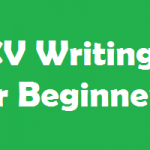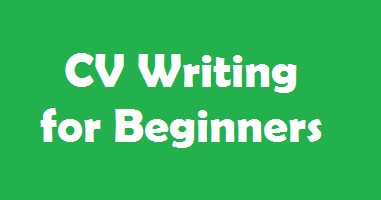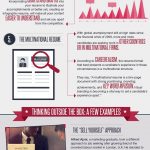We were all once in the position of writing our first CV or resume, and here are some basics to get you started. If you’re applying for a job, most professional positions will require you to write out a personal CV. ‘CV’ stands for ‘Curriculum Vitae’ (Latin meaning ‘story of your life’) and is a brief description of your education and career so far. Using a CV will provide your prospective employer with all the basic information that an employer needs to know about you on a single, easy-to-read sheet. Your CV should be ideally just one page, but certainly not longer than 2 pages, and all of the ‘impressive’ information should be easily visible on the front page.
It is best to type your CV out on a computer as this will be easiest to scan-read for the employer. Once you have written and typed it, you can make as many copies of your CV as you like. This is particularly useful if you want to apply to several different companies at the same time. You should send your CV with a cover letter which can be tailored to highlight your personal skills and achievements and how these match what the employer is looking for.
You can send a copy of your CV when you’re applying for an advertised job vacancy or when you’re just writing on the ‘off-chance’ there is a vacancy.
So, what should be included on a CV?
Personal details – name, address, post code, telephone number, e-mail address (if you’ve got one)Education
- Qualifications
- Skills and personal qualities
- Employment history and experience
- Any special skills e.g. driving licence
- Interests, hobbies and achievements
- Referees
Are there different ‘styles’ of CV?
The ‘traditional’ CV is a comprehensive list of everything in reverse date order (with the most recent at the top) starting with education and qualifications, followed by your employment history, then finishing with interests and references etc.The more modern alternative is to create a ‘personal profile’ CV which starts with a description to offer the reader an idea of yourself which highlights your skills and experience relevant to the job.The latter ‘personal profile’ CV is considered more modern, but ‘traditional’ CVs may be easier for school leavers to write, and are the format still widely used. See more tips below about writing a CV for freshers from our members!
You can also consider these tips on creating a resume that will surely help you land on any job;
- Focus on Your Positive Achievements
- Highlight your best points
- Build up your image
- Be specific with your job objective
- Keep it short
- Use the first page for your Job Objective, Skills, Accomplishments and Most Recent Job Experiences
- Last but not the least, proofread your resume before submitting it to the company












